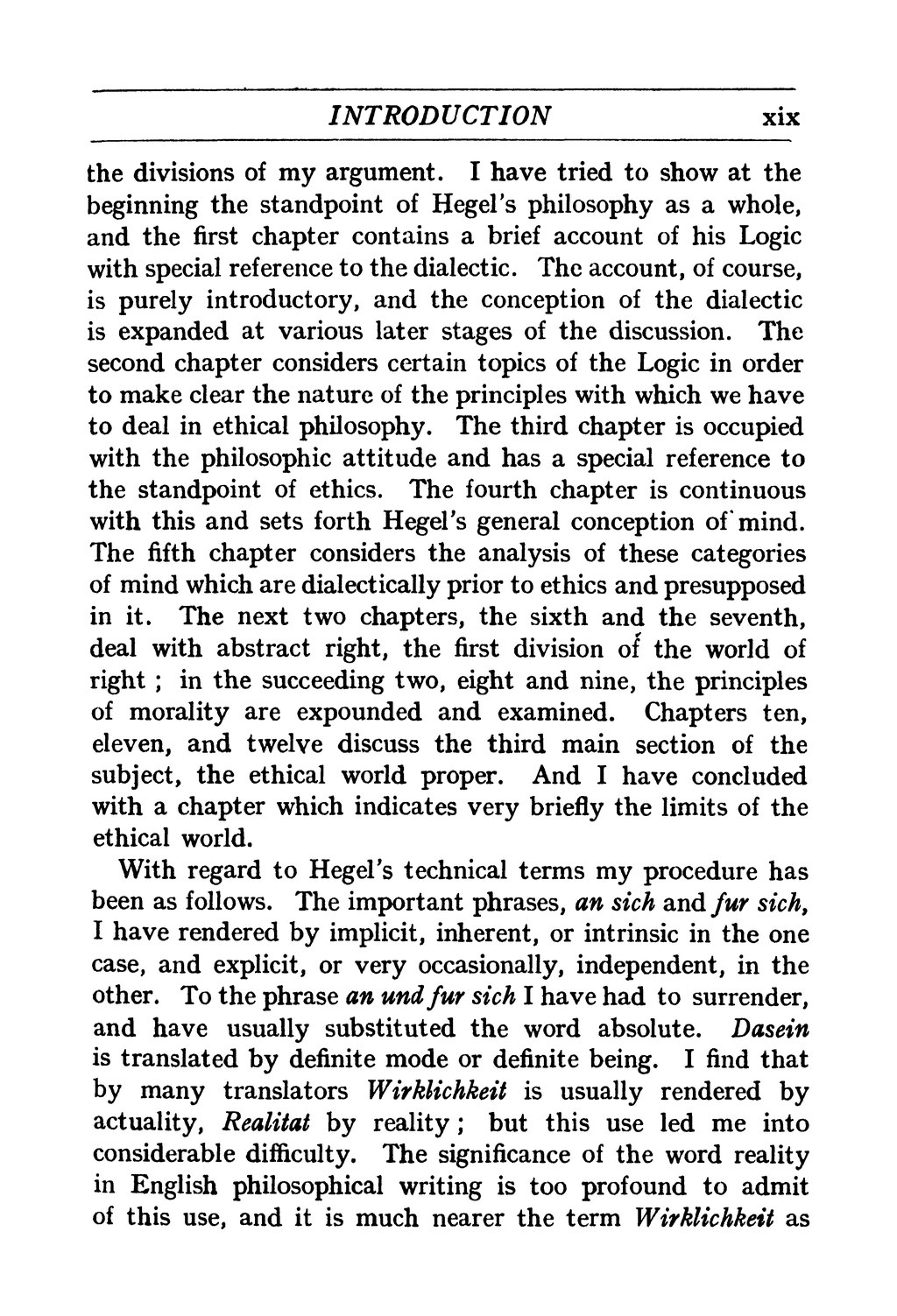the divisions of my argument. I have tried to show at the beginning the standpoint of Hegel’s philosophy as a whole, and the first chapter contains a brief account of his Logic with special reference to the dialectic. The account, of course, is purely introductory, and the conception of the dialectic is expanded at various later stages of the discussion. The second chapter considers certain topics of the Logic in order to make clear the nature of the principles with which we have to deal in ethical philosophy. The third chapter is occupied with the philosophic attitude and has a special reference to the standpoint of ethics. The fourth chapter is continuous with this and sets forth Hegel’s general conception of mind. The fifth chapter considers the analysis of these categories of mind which are dialectically prior to ethics and presupposed in it. The next two chapters, the sixth and the seventh, deal with abstract right, the first division of the world of right; in the succeeding two, eight and nine, the principles of morality are expounded and examined. Chapters ten, eleven, and twelve discuss the third main section of the subject, the ethical world proper. And I have concluded with a chapter which indicates very briefly the limits of the ethical world.
With regard to Hegel’s technical terms my procedure has been as follows. The important phrases, an sich and für sich, I have rendered by implicit, inherent, or intrinsic in the one case, and explicit, or very occasionally, independent, in the other. To the phrase an und für sich I have had to surrender, and have usually substituted the word absolute. Dasein is translated by definite mode or definite being. I find that by many translators Wirklichkeit is usually rendered by actuality, Realität by reality; but this use led me into considerable difficulty. The significance of the word reality in English philosophical writing is too profound to admit of this use, and it is much nearer the term Wirklichkeit as

